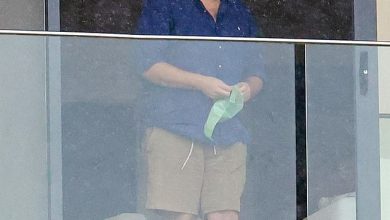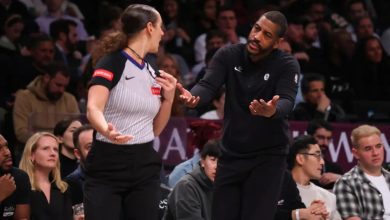What to know about anti-war protests at Columbia, Yale and other colleges

The demonstrations put more pressure on university leaders – from lawmakers, professors, alumni and families concerned about anti-Semitism on campus, and from those who say some establishments have been too aggressive and deprive students of the right to freedom of expression.
Activists have supported Palestinian rights for decades, but the October 7 Hamas attack and the war between Israel and Gaza have brought renewed the urgency of the question for many students. Over the past six months, student protests have intensified at different times, often erupting after news from Gaza, such as the recent Israeli attack on a hospital.
What are the protests about?
Following the October 7 attack and the war that followed, students widely demonstrated solidarity with Palestinians displaced or killed in the conflict. Protesters, particularly at wealthy schools like Yale and Columbia, have also demanded that their university endowments divest from military weapons manufacturers and defense contractors with ties to Israel, in a show of support for the Palestinians.
How many colleges and universities are involved?
Protests are taking place at other public and private colleges and universities across the country, including recently at the University of Michigan, the University of California at Berkeley, the University of Minnesota, and the University of Pittsburgh .
Protests have led to arrests in recent days
While students have engaged in protests since the fall, tensions flared last week when some students occupied campus grounds and offices. Columbia students erected tents last Wednesday, just as the university’s president, Nemat “Minouche” Shafik, was testifying at a congressional hearing on how Columbia handled the allegations anti-Semitism in the aftermath of the war.
The next day, Shafik called the New York police. to disperse the encampment, which led to the arrest of more than 100 pro-Palestinian student protesters. Within days, “Gaza solidarity camps” sprung up on campuses in California, New York, Massachusetts and Michigan.
On Monday, police arrested 47 Yale students who had occupied the campus over the weekend, demanding that the Ivy League school divest from military weapons manufacturers. The students were released the same day. In another protest Monday evening, the NYPD police officers arrested New York University students and faculty after school administrators asked for their help dismantling an encampment on school grounds.
College review expected to continue
With the end of the academic year in the coming weeks, the protests are likely to die down. Still, college administrators could face greater scrutiny beyond their campuses. Sen. Josh Hawley (R-Mo.) said he wants President Biden to deploy the National Guard to protect Jewish students amid what he calls pro-Hamas protests on campus. During his recent Passover greetings, the president condemned recent acts of “harassment and calls for violence against Jews.” He said: “This blatant anti-Semitism is reprehensible and dangerous – and it has absolutely no place on college campuses, or anywhere else in our country. »
Representative Elise Stefanik and the rest of the House Republican delegation of New York sent a letter urging Shafik to resign over what they call his failure to “ensure students have a safe learning environment.”
washingtonpost





